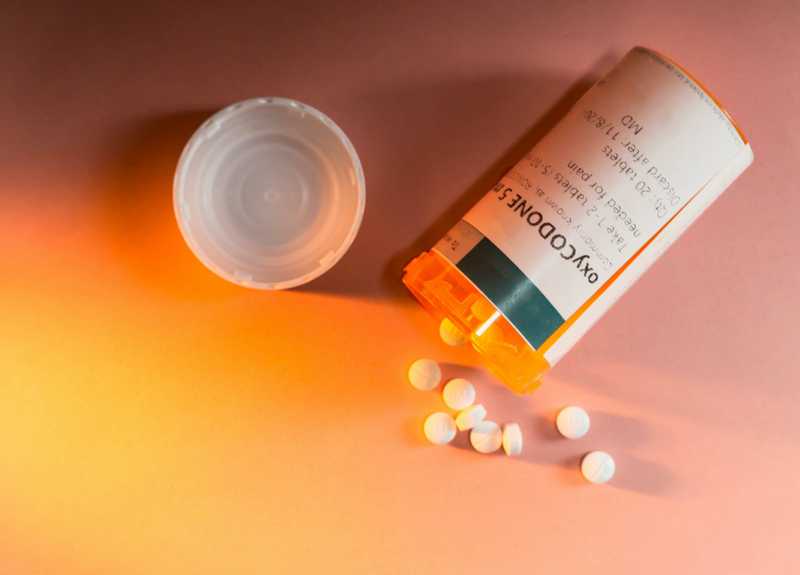Canada and the United States are very different places, but one unfortunate thread that spans both countries is a flood of opioid overdoses. In the two countries, the cause of the current crisis is hotly debated. An overzealous pharmaceutical industry, doctors overprescribing pain medications and a steady flow of fentanyl—a very cheap but spectacularly deadly opioid—have all been cited as causes for the crisis.
Pinning down the cause of the opioid epidemic isn’t as important as finding a solution is. However, a simple fix has been elusive so far. In Canada and the U.S. combined, nearly 68,000 people died of opioid overdoses alone in 2017—most of those, in both countries, from fentanyl.
Are There Any Studies About Cannabis as an Opioid Substitute?
There are only a few studies that take a deep look into how cannabis may work as an opioid substitute. The dearth of research can be traced back to the fact that cannabis remains illegal at the federal level in the United States. Even though Canada has had a medical marijuana program since 2001, doctors were too timid to prescribe cannabis, opting for more conventional medications like Oxycodone or other opiates.
RELATED: IS CANNABIS AN “EXIT DRUG” FROM OPIOID DEPENDENCY?
Some promising data coming out of American states with legal cannabis show that opioid prescriptions fall after marijuana legalization. Many Canadians with firsthand experience of opioid addiction already know cannabis could be a possible solution.
How One Woman Used Marijuana to Quit Opioids
Amy Brown, a cannabis entrepreneur in Toronto, dealt with opioid addiction firsthand. After a nasty car accident, Brown was prescribed opiates to help with a broken wrist and other injuries. Brown kept upping her prescription, until eventually her habit ballooned to more than 100 pills a week.
After about seven months, a loved one told Brown she had an addiction. “It was really hard to hear,” Amy says. With some support, Amy got off opiates. “I went straight to cannabis,” she says.
During her recovery, Amy says she was irritable and generally unpleasant, but after a few weeks, “I was Amy again, not this doped up girl the doctor made,” she says.
While cannabis helped Amy, she recognizes that cannabis doesn’t solve addiction immediately. “For some people, it may take away cravings right away, but the cravings were still there [for me],” she says, “but [cannabis] really does take a lot of the ‘I need it right now’ feelings.”
Opioid Overdose Prevention Sites Use Marijuana With Success
Amy had some luxuries that aren’t available to all opioid addicts. For one, access to cannabis, and another, a family to help support her in recovery. For people who fall further into addiction, that’s where experimentation with street drugs like heroin or fentanyl becomes much more likely.
In Vancouver’s downtown eastside, one of the neighborhoods hit hardest by the opioid crisis, Sarah Blyth helps run an overdose prevention site. Sarah has personally prevented hundreds of deaths with Naloxone—a spray that reverses opioid overdoses— sometimes saving dozens of lives in a single day.
Sarah has used cannabis to help wean people off opioids for years now. “We’ve got a group of about 100 people who’ve all had pretty positive results,” she says. There’s also been dozens more people who come to the overdose prevention tent less frequently for CBD (cannabidiol) or THC (tetrahydrocannabinol) products to help ease cravings for deadlier drugs like heroin or fentanyl.
“[For] some people, cannabis doesn’t help at all, but for others it’s literally a lifesaver,” Sarah says, who adds that CBD in particular is popular with recovering addicts.
Anecdotal stories abound on how cannabis has helped people get off opiates, but Sarah wants this harm-reduction strategy to break into the mainstream. That’s why she’s partnered with the University of British Columbia to conduct a scientific review of the strategies in use at the overdose prevention site.
Canadian Government Open to Cannabis as Part Solution to Opioid Addiction
As Canada gears up for marijuana legalization, it remains to be seen if there will be a similar dip in opioid deaths as has happened in some legal adult-use marijuana states in America. One thing that separates Canada from the United States when it comes to opioid deaths is that it’s conceivable the Canadian government could involve cannabis as part of a coordinated harm-reduction strategy. In the United States, the federal government turning to marijuana as part solution to the opioid epidemic seems less likely today than ever before.
According to Rebecca Jesseman, the policy director for the Canadian Centre on Substance Use and Addiction (CCSA), the Canadian government is both aware and interested in the relationship between cannabis and opioids. “We recognize that there have been some interesting preliminary findings on the relationship between opioids and cannabis use, and certainly, we support further research,” Rebecca says.
While the CCSA has no planned research on harm-reduction strategies specifically tied to cannabis and opioids, it’s monitoring other research projects closely. “We need to be open to exploring innovative approaches, including the potential role of cannabis in reducing opioid use, and we need to ensure that we are gathering and carefully analyzing the evidence,” Rebecca says. “Unfortunately, there is no silver bullet,” she added.
For Sarah Blyth, and many other people on the frontlines of the opioid epidemic, the problem is too dire to wait for methodical research. “We’re not a cannabis organization. We wouldn’t be doing this if we didn’t have to,” says Sarah. “We’re trying to stop the death.”
Photo credit: Cindy Shebley
